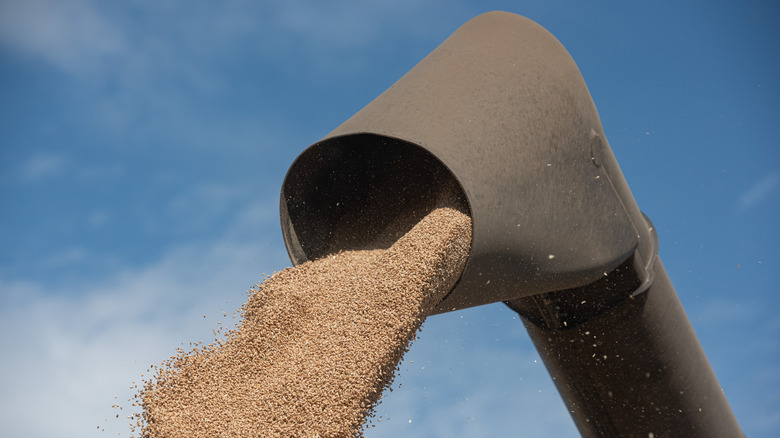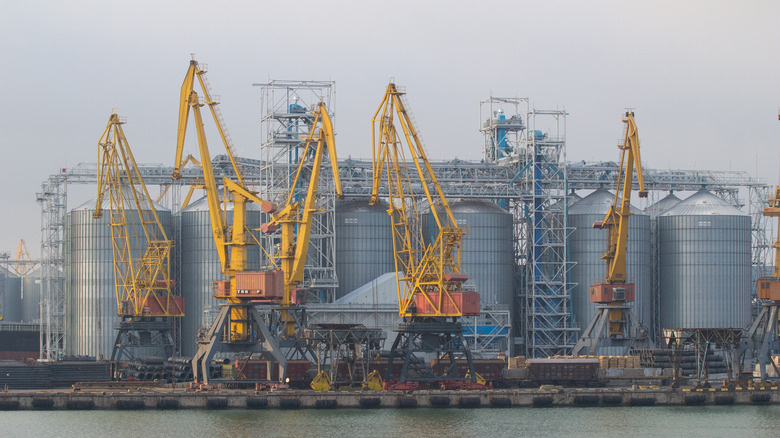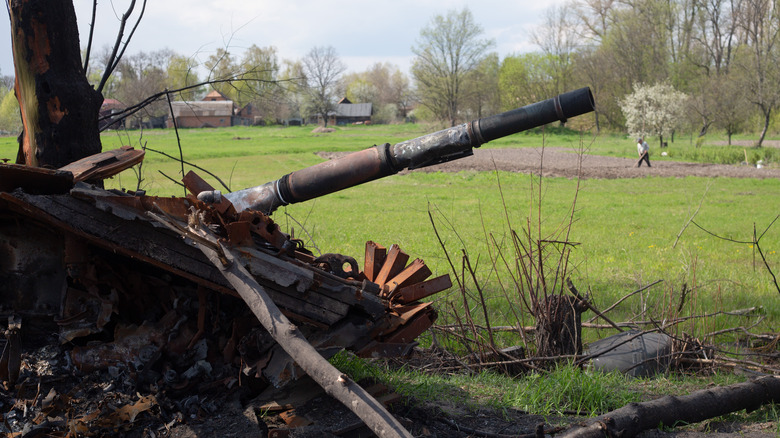The Ukraine Grain Crisis Finally Has Some Good News
Food supplies were affected by the war in Ukraine. When Russia first invaded in February many fears were raised within the global community not just because hostilities effectively started the first war that Europe has seen for many years, per The Conversation, but also because Russia's action effectively cut off the major food supplier from the rest of the world. Wired notes that Russia and Ukraine together grow 30% of the world's wheat, 20% of its corn, and it grows the flowers that produce 80% of the world's sunflower oil. The disruption was so grim that, just weeks into the invasion, the U.S. Department of Agriculture already estimated that wheat exports from both countries would drop by at least 7 million metric tons.
Wired reports the war had several knock-on effects that few considered at the time. From Ukraine's standpoint, last year's autumn crops had been harvested and ready to be shipped, but harvests couldn't leave ports because shipping lanes had been shut down. Grains were no longer stored in temperature and humidity-controlled silos because the power had been cut off, which meant there was a chance they would spoil. And even now, farmers still don't know if they will be able to plant and harvest for the coming season. The uncertainty led to spikes in global food prices for commodities including wheat, which hit a 14-year high. Russia further hurt the world's farmers by suspending fertilizer shipments.
Ukraine has started exporting grains again
Grain prices are finally off their highs, not because both sides have been able to settle their political differences but because of a deal that allows Ukraine to begin unloading its grain stores to ease the global food shortage, per Associated Press. Even after the deal was signed, there was still uncertainty over whether the agreement, which is backed by the United Nations and Turkey, would actually push through — Russian forces had shelled the port city of Odesa just hours later, per Bloomberg.
Still, all the uncertainty finally came to an end when Ukraine sent out a ship with over 26,000 tons of corn to Lebanon, per the Associated Press. The departure was confirmed by Ukraine Minister of Infrastructure Oleksandr Kubrakov via Twitter, "The first grain ship since Russian aggression has left port." He added, "Today Ukraine, together with partners, takes another step to prevent world hunger" (via Associated Press).
Under Ukraine's new grain deal with Russia, the country will be able to export 22 million tons of agricultural products that have remained in its ports, per the Associated Press. But Russia benefits as well, because it will also be able to sell both its grain and fertilizer, which the world also badly needs. The deal further benefits Ukrainian farmers because it gives them a place to store their fall harvests, per Trading Economics.
The deal between Russia and Ukraine is still uncertain
After the deal was signed, United Nations Under-Secretary-General for Political and Peacebuilding Affairs Rosemary DiCarlo said, "The grain agreement is a sign that dialogue between the parties is possible in the search to ease human suffering," per ReliefWeb. The timing is critical because fighting is now close to the half-year mark and there still appears to be no end in sight.
While the first shipment is a positive sign, there is no certainty that Russia will stick to the arrangement or that fighting wouldn't interfere. As Ukrainian scholar Volodymyr Sidenko told the Associated Press, "The departure of the first vessel doesn't solve the food crisis, it's just the first step that could also be the last if Russia decides to continue attacks in the south." Only time will tell if the deal remains in place and Ukraine is able to export its goods.


